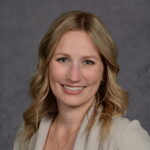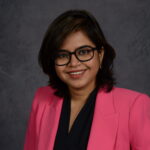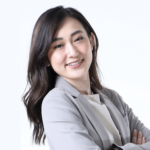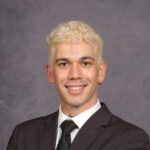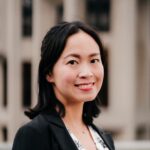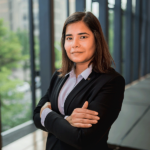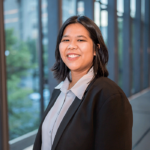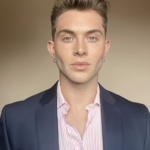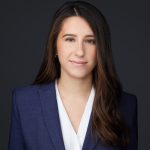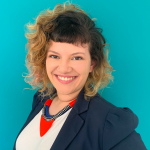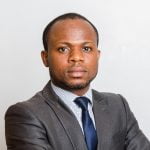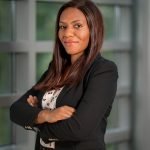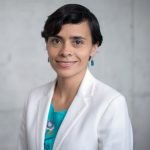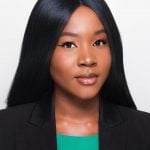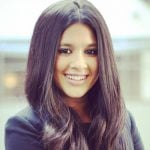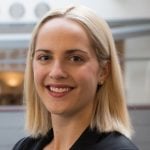To engage students in advancing the agenda on gender equality, GATE offers a competition each year for student fellowships.
To engage students in advancing the agenda on gender equality, GATE offers a competition each year for student fellowships. Each selected MBA Fellow receives a bursary of $10,000 and commits to work on a project related to the mandate of GATE under the supervision of GATE’s director, GATE Faculty Research Fellows, and Executive-in-Residence. Students will also benefit from mentoring from consultants at Bain Consulting as well as from GATE Faculty Teaching Fellows. The MBA Fellowships have been generously supported by BMO 2023-2028.
You can see current and past GATE MBA Student Fellows’ project topics and insightful outputs below. Students interested in being a student fellow can apply through the MBA in-program awards in May of each year.
GATE also hires MBA students for 12-weeks internships. During their internships, interns conduct research and write a series of case studies of how companies and organizations use a gender lens to design better services, products and strategies for more equitable outcomes. You can read the case studies here. The MBA Internships have been generously supported by the Latner family for 2024-2026.
2024-25 BMO GATE MBA Student Fellows
Momoko holds a bachelor's degree in sociology from the University of California, Berkeley, where her studies focused on gender inequality and intersectionality. She has four years of experience in public relations. During her internship at GATE, she developed three case studies through research and interviews with industry leaders. Her interests include exploring the discourses around childfree women and potential business opportunities that may be missed by overlooking this demographic in marketing strategies.
Sanchaita is an oral surgeon with a background in both public and private healthcare. Before her MBA, Sanchaita was an accomplished entrepreneur. She founded and grew for three years a venture geared towards improving access to care for women and the transgender community in South Asia. She has successfully run social campaigns promoting health equity and destigmatizing gender reassignment procedures across geographies. She also mentors several women to help them break gender stereotypes and become business owners in traditionally male-dominated fields. As part of her BMO GATE MBA Fellowship, Sanchaita aims to study underlying gender biases and gender dysphoria in the North American business community, to further her mission of alleviating these limiting factors for gender equity in an economy.
Natasha has over ten years of experience in marketing and digital strategy within the eCommerce, travel, and IT sectors. Currently, Natasha manages a remote digital marketing team for an international gift delivery business. As a recent immigrant, she has developed a keen interest in the workplace challenges and obstacles that newcomers face, both in remote and in-person settings. As a BMO GATE MBA fellow, Natasha aims to focus on strategic interventions to enhance workplace inclusivity and resilience, particularly for recent immigrants who identify as women.
Kerstie began working at TD as a Communications Manager for TD Economics in January 2023. Prior to TD, Kerstie gained extensive experience working in politics in both Ontario and Alberta and passed all three levels of the CFA. As an autistic individual, Kerstie is interested in exploring how this diagnosis can affect career progression. As a BMO GATE MBA Fellow Kerstie aims to explore and identify strategies that organizations can implement to better support and accommodate individuals with autism, helping them to excel and achieve success in their professional lives.
Bidisha holds a bachelor’s degree in computer science and engineering. She merges analytical skills with creative thinking to develop solutions empowered by technology. Bidisha is also deeply committed to promoting inclusivity, working closely with LGBTQIA+ groups in India and leading efforts to enlighten corporate leaders about the importance of diversity. She has innovated an AI tool that assesses business strategies and presentations for new ventures. Bidisha is currently dedicated to formulating AI-driven metrics to gauge the gender and economy equality index in companies, aiming to enhance awareness and understand its influence on corporate performance. She is passionate about advancing gender and equality awareness in the business world.
Currently pursuing an MBA at the Rotman School of Management, Momoko holds a bachelor's degree in sociology from the University of California, Berkeley, where her studies focused on gender inequality and intersectionality. With four years of experience in public relations, Momoko has a strong track record of supporting global technology companies in their PR initiatives. Working with C-level executives and industry thought leaders, Momoko's PR experience also provided insights into gender disparities in public-facing roles within the technology sector. During her MBA internship at GATE, she aims to uncover actionable insights for integrating gender considerations into product development and business design.
Zachary is a first year MBA at the Rotman School of Management. He is an education and diversity professional with over seven years’ experience in curriculum development, directing events, strategic management and inclusivity training across South Korea, China, and Norway. He has led multinational teams while living in China and consulted on projects that helped diverse communities develop sustainable strategic plans to address racial, gender, and accessibility inequalities in the community. Having lived abroad for more than half his life, Zachary is passionate about identity and culture politics and how these impact experiences differently across various workplaces. As a passionate advocate for diversity, equity and inclusion, Zachary is excited to take on the role of a Latner GATE MBA Intern. Through this experience, he hopes to contribute meaningfully to the research around gender equality and develop resources that lead to better informed and up-to-date discussions on gender in the economy.
Tanmay is currently pursuing an MBA at the Rotman School of Management, bringing with him over four years of extensive experience in management consulting and finance advisory across Asia and Europe. With a professional degree in Finance and Accounting, Tanmay has adeptly combined his academic knowledge and problem-solving skills to provide innovative solutions to clients. During his undergraduate studies, Tanmay encountered first-hand instances of financial exclusion and limited access to education, characterized by gender divide and poverty, which ignited his passion to address these challenges. This drove him to explore opportunities in both for-profit and not-for-profit sectors, aiming to make a positive impact. Through his internship, Tanmay aims to leverage the mentorship and support network provided by the GATE team to further enhance his toolkit for promoting financial inclusion, particularly by learning from initiatives undertaken in developed countries, and ultimately making a meaningful difference in underserved communities.
In his BMO GATE MBA Fellowship project, Nafisul created two infographics and a report exploring how corporate organizations can become more inclusive to newcomers in Canada. The infographics offer strategies and tips to businesses and large organizations on distinguishing themselves and addressing gaps in the labor market. His report outlines existing practices used by companies and offers alternative solutions to improve their newcomer strategies.
Click here to view Nafisul's final project.
In her BMO GATE MBA Fellowship project, Alex explores the experiences of women with ADHD in the workplace through a four-part video series. This series serves as a guide for managers, team leaders, and HR professionals, delving into the unique challenges faced by women with ADHD in professional settings. Narrated, illustrated, and written by Alex, who has firsthand experience navigating ADHD in the workplace, the series highlights how ADHD symptoms manifest differently in women. By understanding these challenges and strengths, managers can unlock the true potential of their employees, leading to improved workplace dynamics for all.
Click here to view Alex's final project.
Wendy Nguyen is a second-year evening MBA student. Wendy has over twelve years of experience in risk management, supply chain management, strategic planning, and adult education in both public and private sectors. Wendy is currently at Ontario Government's Treasury Board Secretariat as Manager of Risk Reporting and Standards. Wendy enjoys giving back to the community and currently serves as a Patient Advisor at Ontario Health and Pediatric Oncology Group of Ontario. As a GATE MBA Fellow, Wendy's experience as a cancer survivor has inspired her to focus her research project on young women cancer survivors' experiences in returning to work.
In her BMO GATE MBA Fellowship project, Nishtha created a podcast that tackles the tough topic of colourism in the workplace and beyond. Colourism is the practice of treating people differently based on their skin tone. Lighter skin often receives preferential treatment, while darker skin faces discrimination. This bias exists across various racial and ethnic communities and influences important areas such as employment, housing, and social interactions. The podcast features interviews from people who share their own experiences with colourism, as well as interviews with DEI and mental health experts who share how colorism can affect individuals.
Click here to view Nishtha's final project.
In her BMO GATE MBA Fellowship project, Corrina presents a case study of Mujer Emprende, a microcredit product developed by MiCredito, Nicaragua’s most profitable microfinance institution. Mujer Emprende provides credit to first-time women entrepreneurs, largely from poor families, who find it difficult to get loans without a business track record, collateral or guarantees. By using innovative product features and customer development approaches, Mujer Emprende has managed to de-risk “risky” clients, remain profitable and change lives.
Click here to view Corrina's final project.
Yinzi is a JD/MBA candidate at the University of Toronto. She also holds a master’s degree in Media and Gender Studies. Prior to Rotman, Yinzi has been a veteran journalist, gender studies scholar, and tech entrepreneur. She loves to listen to and share the stories of women from all backgrounds. Yinzi spent the summer of 2022 working as a Research Assistant for the famous gender and law scholar Professor Brenda Cossman at the Faculty of Law, University of Toronto, as well as a caseworker for the IAVGO Community Legal Clinic promoting workplace justice for precarious workers. Yinzi’s relentless pursuit of justice and equity for women in the workplace led her to pursue a JD/MBA joint degree to understand how the power of business and law can make the workplace fairer and kinder to women.
Click here to view Yinzi's final project.
In their GATE MBA Fellow research project, Christopher attempts to demystify the often-misunderstood aspects of gender non-conformity, exploring questions around biology, societal expectations, clothing, makeup, and more. Using a common three-pronged framework, they analyze the intricate relationships among physical characteristics, gender expression, and gender identity. Join Christopher as they challenge archetypal notions of gender, interpret data they gathered from other MBA students, and strive towards a better understanding of all gender identities. Start questioning, ‘What is gender anyway?’ and get ready to expand your perspectives!
Click here to view Christopher's final project.
'From Boardroom to Playroom: Challenges of Working Mothers in Nigerian Corporations' delves into the problems faced by working mothers in Nigerian companies, as revealed through firsthand interviews, extensive research and Dotun’s experiences. Nigeria’s deeply patriarchal society exacerbates the challenges working mothers face, ranging from missed promotions to insufficient maternity leave and absence of on-site support facilities. By advocating for policy reform, cultural evolution, and empathy in the corporate environment, this project aims to empower working mothers and foster gender equality. Understanding and addressing these obstacles is as essential for mothers’ well-being as is crucial for economic growth and societal progress.
Click here to view Dotun's final project.
'Women and Personal Finance: Addressing a Gender Gap' in Investing is a report that delves into the underlying causes of the gender investment gap and offers insights from smart and independent women who actively participate in personal finance. The report aims to shed light on the social and economic factors that have influenced these women's interest in investing. This report is a contribution to the ongoing dialogue on financial inclusion and aims to inspire both individuals and the investment industry to take proactive steps towards bridging the gender investment gap and creating a more equitable and inclusive financial landscape for all.
Click here to view Pritika's final project.
'Exploring Diversity: Considerations for Brand Managers in Fostering Women’s Representation in CPG Advertising' sheds light on the persistent stereotypes and inequalities prevalent in advertising and marketing campaigns of major CPG brands in Canada. Mauricio’s research, utilizing qualitative analysis, interviews, surveys, and literature, reveals that while progress has been made in addressing these gaps, most campaigns continue to portray women through outdated models and clichés, failing to align with the realities of today’s society. This project aims to spotlight how women are represented, highlighting its impact on product availability and urging brands to target a broader spectrum of diversity. By advocating for inclusive advertising practices, this study aims to inspire positive change, challenging norms and emphasizing brands’ responsibility in fostering equitable representation.
Click here to view Mauricio's final project.
Aleksandra created The Scale-Up Toolkit for Women Entrepreneurs which provides resources for women entrepreneurs in Canada to grow their business through talent. Using insights from various stakeholders, including business owners and ecosystem partners, the toolkit explores three challenges: labour shortage, skills gap, and talent productivity. Based on the key findings, it offers tools and solutions to address these concerns.
Click here to view Aleksandra's final project.
Fintech innovation, through all its forms – technological, business and digital, has often been described as a democratizing influence in the field of financial services and products. By lowering the costs and barriers to participation, fintech innovation can conceivably reach demographics that have often been underrepresented or even left out. One such large demographic is women. In this series of articles, originally published on Medium, Zolzaya seeks to understand how fintech innovation has or has not affected women consumers, and what fintech leaders need to know in order to appeal to and acquire the rapidly growing demographic of women customers. In particular, she focused in-depth on the idea of gender-intelligent design for customer acquisition, the rise of the more targeted inclusive fintech model, and the role and precautions needed for AI and ML technologies within financial services.
Click here to view Zolzaya's final report.
Bilal created a video project in which he explores the role of masculine identities on the well-being of men. After recalling his earliest experiences with patriarchy and the need to empower women, Bilal dives into the harmful consequences of gender norms on men. In exploring this topic, he interviews various distinguished scholars who go into detail about gender norms and their rigidity, socialization, labour force, mental health, and many more.
Click here to view Bilal's final project.
Positively Exhausted - Stories of Toxic Positivity in the Workplace is a limited podcast series with three episodes. Simone investigates the idea that the best way to cope with a challenging situation at work is to put a positive spin on it and not dwell on its negative or structural aspects, a trend that is often promoted by companies and leaders and can leave employees feeling burned out and gaslit. Through expert interviews and personal accounts, Simone investigated the effects of toxic positivity on employees and company culture and makes a case as to why women experience disproportionate effects when working in toxic positive work environments.
Click here to view Simone's final project.
In her GATE research project, Ann discusses the power that fashion has to reflect and shape culture, and examines the role the industry plays in challenging gender norms. With insights gathered from personal experience, desk research and interviews with designers from different parts of the globe working in various types of establishments, this project analyzes the progress made in the industry as it relates to gender equity and, the barriers that hinder this progress further and offers a set of recommendations on how these may be overcome.
Click here to view Ann's final project.
Stephen’s project explores the implications of applying a gender lens to infrastructure development. His report outlines lessons from the field, drawing insights from three distinct case studies including; the Reina Condo development project, Zaatari Waterwaste Network in Jordan, and the Eglinton East Light Rail Transit (EELRT). Stephen uncovers the opportunities for innovation that can be identified when planning is intentionally inclusive.
Click here to read Stephen's final report.
Hashir explores COVID-19, working families, and the distribution of household and familial responsibilities during the pandemic. Through quotes and insights from multiple interviews, Hashir’s report, Exploring Equity at Home provides a poignant study of couples negotiating the challenges of the pandemic and nurturing equity in their relationships.
Click here to read Hashir's final report.
Chantal’s project looks at the impact of COVID-19 on women entrepreneurs in Nigeria. Chantal explored the challenges and barriers that existed before the pandemic, new hurdles women entrepreneurs face during the pandemic and how these women are adapting to endure the economic damage. Chantal illustrates the trade-offs that her interviewees are having to make and suggests interventions that will help entrepreneurs recover and thrive in a post-pandemic Nigeria.
Click here to read Chantal's final report.
In her report, Acting as Allies: Understanding student allyship and its barriers, Aishwarya details the experiences of performative allyship and its implications in university students. Aishwarya explores how students cope with feeling like outsiders, empathy, and social discomfort. She provides a road map for how academic institutions can deepen equity, diversity and inclusion work to inform students on participatory allyship and facilitate social inclusion.
Click here to read Aishwarya's final report.
In her report Disrupting Silence, Laura investigates how we can disrupt silence in response to discrimination. Through interviews with students and faculty, she details how bystanders decide to speak up, or not, and the impacts of silence on victims of discrimination. Laura provides supporting infographics to illustrate that the disruption of silence is a collective effort.
Click here to read Laura's final report.
Ana Baseio is an MBA Candidate of the Rotman School of Management. Born and raised in an emerging country, Ana has a never-ending curiosity about different cultures and how she can contribute to tackling the systemic issues she encounters. Having already lived in 4 different countries and making friends from different parts of the world, she observed that gender inequality is a common issue. Ana decided to work with GATE to expand her knowledge in gender equality to be able to address this issue more efficiently and help eliminate the existing gender gap in large corporations.
Click here to read Ana's full bio.
Victoria Sahagian is an Intern at the Institute for Gender and the Economy at the University of Toronto’s Rotman School of Management. She is a full-time MBA student in Rotman’s class of 2021. As a passionate advocate for gender equality in the workplace, Victoria is eager to take on the role of Intern and work with GATE engaging in research which promotes an understanding of gender inequalities and how they may be remedied.
Click here to read Victoria's full bio.
Robert’s project explored experiences of white male privilege in Toronto’s corporate law market. Inspired by Hadiya Roderique’s “Black on Bay Street”, Robert wanted to know how issues surrounding diversity, inclusion, and privilege were viewed from the perspectives of those who experience that privilege. Through exploratory interviews with eight white male law students at the University of Toronto, this project aimed to encourage corporate law firms (as well as the legal industry more broadly) to continue finding creative and meaningful ways of engaging with and addressing racial inequities in corporate law.
Click here to read Robert's final report.
In his project, Pablo investigated the latest research regarding gender bias in Machine Learning. Drawing insights from technical papers, conferences, and interviews with practitioners, Pablo's report question what companies need to do to take advantage of the many resources available in the growing field of Machine Learning Fairness. Pablo's key insight is that bias in Machine Learning is more than a technical challenge, requiring leadership and organizational change from companies. The result of his investigation is a framework (Understand Fairness, Engage Stakeholders, Build Fairness Skills) to help companies navigate the complex landscape of mitigating gender bias in Machine Learning.
Click here to read Pablo's final report.
Chinedum’s paper examines the sexist portrayal of career women in Nigerian films. She has chosen these films as the focus of her analysis because of the power that films have in influencing beliefs about how Nigerian women should behave and what we should be permitted to do. In her analysis, Chinedum uncovers and calls out the common sexist ways in which the career woman is represented, depicted, and treated in Nollywood, highlighting recurring tropes and including specific examples from 10 popular films. In addition to the film analysis, she conducted informal interviews with 6 Nigerian women to explore the impact of Nollywood’s depiction of the career woman on these women’s perceptions of themselves
Click here to read Chinedum's final report.
Kristina's research delves into the question of whether lived experiences as an LGBTQ+ person (e.g. feeling like an outsider, coming out) contribute to building leadership qualities and skills that lead to success in the business world. To help answer this question, she made use of Patricia Hill Collins' outsider-within framework, among others, and explored the lived realities of eight outstanding LGBTQ+ business leaders in Toronto. She uncovered themes and insights institutionalized into a leadership toolkit by both LGBTQ+ and non LGBTQ+ people alike, to be leaders in their fields while celebrating the freedom to be different in the context of greater inclusion.
Click here to read Kristina's final report.
Through her research, Asli aimed to understand why women remain notably underrepresented at leadership levels in the technology industry. Despite concerted efforts on diversity, progress toward gender parity has been slow suggesting that women lack equal opportunities and encounter barriers that impede their career growth and progression into leadership roles. In interviews with 7 Human Resources professionals, her report provides insights into why women’s share of leadership is far from parity and what makes current diversity efforts less effective. Starting with talent decisions and how unintended bias impacts decision-making, this report highlights the importance of diversity at the decision-making tables, and how the paucity of women role models in the upper echelons of management perpetuates the status quo, amplifying the impact of leadership attributes premised on pernicious gender stereotypes.
Click here to read Asli's final report.
Lechin launched the ROTMOM Project in September 2018. Through this project, she sought to better understand the experiences of mothers in MBA programs. Using design thinking, she documented and designed ways aspiring leaders, who are also mothers of young children, can advance through Rotman’s MBA programs. The end goal is gender parity not only in business schools, but in leadership roles across Canada. For this project, she interviewed 11 “ROTMOMs” from full-time, Morning/Evening and Executive MBA programs. They came from different industry backgrounds and have children aged from a few weeks old to early grade school.
Click here to read Lechin's final report.
Narjis proposed developing a podcast examining the phenomenon of "covering" in the workplace. Covering is a term that refers to how an individual restricts themselves from expressing their authentic selves in a variety of contexts. In the context of a work environment, covering can not only harm the individual but also hinder an organization’s ability to create a true culture of inclusion.In this podcast, Narjis interviews individuals who have covered or uncovered certain aspects of their identity in the workplace, such as their religion, ethnicity, marital status, disabilities, and sexual orientation.
Click here to listen to Narjis' podcast.
Through this research, Alicia aimed to understand why the capital markets industry has failed to attract and retain diverse talent. Despite being an incredibly lucrative career path, low recruitment and retention rates suggest that women are opting out of careers in capital markets, if they are choosing to enter the industry at all. In interviews with 18 men and women, currently or formerly employed in capital markets, her report provides five insights into why women are not choosing careers in this industry. Starting with gender stereotypes and industry-wide culture, this report highlights structural interventions that can improve an organization’s ability to attract and retain a more gender-diverse workforce.
Click here to read Alicia's final report.
Adil's project looked to assess the inherent bias that exists around corporate sponsorship in women’s sports, what its root causes are, and how it can be overcome so that decisions around sponsorship are taken with an unbiased gender lens. By utilizing case studies and interviews, as well as researching global best practices, he outlines five recommendations for increasing the coverage of women's sports globally that will ultimately help close the gender gap in sponsorship.
Click here to read Adil's final report.
Through the testimonies of twenty male Rotman MBA students, Verónica aimed to understand what it means to be a man in today's society, the challenges, and how these students understand and relate to the gender equality policies and actions underway. Further, she used these insights to propose three action plans in order to start the conversation and seize the opportunity to effectively include men by creating psychologically safe spaces for male students to raise questions, feel supported and be engaged while working towards achieving gender equality at Rotman.
Click here to read Verónica's final report.
Through her project, Alison sought to understand the current decision-making process of men with regards to parental leave. She wanted to learn what inhibited them or allowed them to access leave, and what that leave looked like, including use of vacation time and informal and unpaid leave. In gaining an understanding of their current behaviour, she identified ways that employers and policymakers can solve for the needs and obstacles of fathers.
Click here to read Alison's final report.
Click here to watch Ria's video series.
Click here to listen to Vanessa's podcast series.
Click here to view Hilary's findings.
Click here to view Fatima's findings.
Newsletter
We’re talking about
To engage students in advancing the agenda on gender equality, GATE offers a competition each year for student fellowships.
To engage students in advancing the agenda on gender equality, GATE offers a competition each year for student fellowships. Each selected MBA Fellow receives a bursary of $10,000 and commits to work on a project related to the mandate of GATE under the supervision of GATE’s director, GATE Faculty Research Fellows, and Executive-in-Residence. Students will also benefit from mentoring from consultants at Bain Consulting as well as from GATE Faculty Teaching Fellows. The MBA Fellowships have been generously supported by BMO Financial Group for 2023-2028.
You can see current and past GATE MBA Student Fellows’ project topics and insightful outputs below. Students interested in being a student fellow can apply through the MBA in-program awards in May of each year.
GATE also hires MBA students for 12-weeks internships. During their internships, interns conduct research and write a series of case studies of how companies and organizations use a gender lens to design better services, products and strategies for more equitable outcomes. You can read the case studies here.
2024-25 BMO GATE MBA Student Fellows
Momoko holds a bachelor's degree in sociology from the University of California, Berkeley, where her studies focused on gender inequality and intersectionality. She has four years of experience in public relations. During her internship at GATE, she developed three case studies through research and interviews with industry leaders. Her interests include exploring the discourses around childfree women and potential business opportunities that may be missed by overlooking this demographic in marketing strategies.
Sanchaita is an oral surgeon with a background in both public and private healthcare. Before her MBA, Sanchaita was an accomplished entrepreneur. She founded and grew for three years a venture geared towards improving access to care for women and the transgender community in South Asia. She has successfully run social campaigns promoting health equity and destigmatizing gender reassignment procedures across geographies. She also mentors several women to help them break gender stereotypes and become business owners in traditionally male-dominated fields. As part of her BMO GATE MBA Fellowship, Sanchaita aims to study underlying gender biases and gender dysphoria in the North American business community, to further her mission of alleviating these limiting factors for gender equity in an economy.
Natasha has over ten years of experience in marketing and digital strategy within the eCommerce, travel, and IT sectors. Currently, Natasha manages a remote digital marketing team for an international gift delivery business. As a recent immigrant, she has developed a keen interest in the workplace challenges and obstacles that newcomers face, both in remote and in-person settings. As a BMO GATE MBA fellow, Natasha aims to focus on strategic interventions to enhance workplace inclusivity and resilience, particularly for recent immigrants who identify as women.
Kerstie began working at TD as a Communications Manager for TD Economics in January 2023. Prior to TD, Kerstie gained extensive experience working in politics in both Ontario and Alberta and passed all three levels of the CFA. As an autistic individual, Kerstie is interested in exploring how this diagnosis can affect career progression. As a BMO GATE MBA Fellow Kerstie aims to explore and identify strategies that organizations can implement to better support and accommodate individuals with autism, helping them to excel and achieve success in their professional lives.
Bidisha holds a bachelor’s degree in computer science and engineering. She merges analytical skills with creative thinking to develop solutions empowered by technology. Bidisha is also deeply committed to promoting inclusivity, working closely with LGBTQIA+ groups in India and leading efforts to enlighten corporate leaders about the importance of diversity. She has innovated an AI tool that assesses business strategies and presentations for new ventures. Bidisha is currently dedicated to formulating AI-driven metrics to gauge the gender and economy equality index in companies, aiming to enhance awareness and understand its influence on corporate performance. She is passionate about advancing gender and equality awareness in the business world.
Currently pursuing an MBA at the Rotman School of Management, Momoko holds a bachelor's degree in sociology from the University of California, Berkeley, where her studies focused on gender inequality and intersectionality. With four years of experience in public relations, Momoko has a strong track record of supporting global technology companies in their PR initiatives. Working with C-level executives and industry thought leaders, Momoko's PR experience also provided insights into gender disparities in public-facing roles within the technology sector. During her MBA internship at GATE, she aims to uncover actionable insights for integrating gender considerations into product development and business design.
Zachary is a first year MBA at the Rotman School of Management. He is an education and diversity professional with over seven years’ experience in curriculum development, directing events, strategic management and inclusivity training across South Korea, China, and Norway. He has led multinational teams while living in China and consulted on projects that helped diverse communities develop sustainable strategic plans to address racial, gender, and accessibility inequalities in the community. Having lived abroad for more than half his life, Zachary is passionate about identity and culture politics and how these impact experiences differently across various workplaces. As a passionate advocate for diversity, equity and inclusion, Zachary is excited to take on the role of a Latner GATE MBA Intern. Through this experience, he hopes to contribute meaningfully to the research around gender equality and develop resources that lead to better informed and up-to-date discussions on gender in the economy.
Tanmay is currently pursuing an MBA at the Rotman School of Management, bringing with him over four years of extensive experience in management consulting and finance advisory across Asia and Europe. With a professional degree in Finance and Accounting, Tanmay has adeptly combined his academic knowledge and problem-solving skills to provide innovative solutions to clients. During his undergraduate studies, Tanmay encountered first-hand instances of financial exclusion and limited access to education, characterized by gender divide and poverty, which ignited his passion to address these challenges. This drove him to explore opportunities in both for-profit and not-for-profit sectors, aiming to make a positive impact. Through his internship, Tanmay aims to leverage the mentorship and support network provided by the GATE team to further enhance his toolkit for promoting financial inclusion, particularly by learning from initiatives undertaken in developed countries, and ultimately making a meaningful difference in underserved communities.
In his BMO GATE MBA Fellowship project, Nafisul created two infographics and a report exploring how corporate organizations can become more inclusive to newcomers in Canada. The infographics offer strategies and tips to businesses and large organizations on distinguishing themselves and addressing gaps in the labor market. His report outlines existing practices used by companies and offers alternative solutions to improve their newcomer strategies.
Click here to view Nafisul's final project.
In her BMO GATE MBA Fellowship project, Alex explores the experiences of women with ADHD in the workplace through a four-part video series. This series serves as a guide for managers, team leaders, and HR professionals, delving into the unique challenges faced by women with ADHD in professional settings. Narrated, illustrated, and written by Alex, who has firsthand experience navigating ADHD in the workplace, the series highlights how ADHD symptoms manifest differently in women. By understanding these challenges and strengths, managers can unlock the true potential of their employees, leading to improved workplace dynamics for all.
Click here to view Alex's final project.
Wendy Nguyen is a second-year evening MBA student. Wendy has over twelve years of experience in risk management, supply chain management, strategic planning, and adult education in both public and private sectors. Wendy is currently at Ontario Government's Treasury Board Secretariat as Manager of Risk Reporting and Standards. Wendy enjoys giving back to the community and currently serves as a Patient Advisor at Ontario Health and Pediatric Oncology Group of Ontario. As a GATE MBA Fellow, Wendy's experience as a cancer survivor has inspired her to focus her research project on young women cancer survivors' experiences in returning to work.
In her BMO GATE MBA Fellowship project, Nishtha created a podcast that tackles the tough topic of colourism in the workplace and beyond. Colourism is the practice of treating people differently based on their skin tone. Lighter skin often receives preferential treatment, while darker skin faces discrimination. This bias exists across various racial and ethnic communities and influences important areas such as employment, housing, and social interactions. The podcast features interviews from people who share their own experiences with colourism, as well as interviews with DEI and mental health experts who share how colorism can affect individuals.
Click here to view Nishtha's final project.
In her BMO GATE MBA Fellowship project, Corrina presents a case study of Mujer Emprende, a microcredit product developed by MiCredito, Nicaragua’s most profitable microfinance institution. Mujer Emprende provides credit to first-time women entrepreneurs, largely from poor families, who find it difficult to get loans without a business track record, collateral or guarantees. By using innovative product features and customer development approaches, Mujer Emprende has managed to de-risk “risky” clients, remain profitable and change lives.
Click here to view Corrina's final project.
Yinzi is a JD/MBA candidate at the University of Toronto. She also holds a master’s degree in Media and Gender Studies. Prior to Rotman, Yinzi has been a veteran journalist, gender studies scholar, and tech entrepreneur. She loves to listen to and share the stories of women from all backgrounds. Yinzi spent the summer of 2022 working as a Research Assistant for the famous gender and law scholar Professor Brenda Cossman at the Faculty of Law, University of Toronto, as well as a caseworker for the IAVGO Community Legal Clinic promoting workplace justice for precarious workers. Yinzi’s relentless pursuit of justice and equity for women in the workplace led her to pursue a JD/MBA joint degree to understand how the power of business and law can make the workplace fairer and kinder to women.
Click here to view Yinzi's final project.
In their GATE MBA Fellow research project, Christopher attempts to demystify the often-misunderstood aspects of gender non-conformity, exploring questions around biology, societal expectations, clothing, makeup, and more. Using a common three-pronged framework, they analyze the intricate relationships among physical characteristics, gender expression, and gender identity. Join Christopher as they challenge archetypal notions of gender, interpret data they gathered from other MBA students, and strive towards a better understanding of all gender identities. Start questioning, ‘What is gender anyway?’ and get ready to expand your perspectives!
Click here to view Christopher's final project.
'From Boardroom to Playroom: Challenges of Working Mothers in Nigerian Corporations' delves into the problems faced by working mothers in Nigerian companies, as revealed through firsthand interviews, extensive research and Dotun’s experiences. Nigeria’s deeply patriarchal society exacerbates the challenges working mothers face, ranging from missed promotions to insufficient maternity leave and absence of on-site support facilities. By advocating for policy reform, cultural evolution, and empathy in the corporate environment, this project aims to empower working mothers and foster gender equality. Understanding and addressing these obstacles is as essential for mothers’ well-being as is crucial for economic growth and societal progress.
Click here to view Dotun's final project.
'Women and Personal Finance: Addressing a Gender Gap' in Investing is a report that delves into the underlying causes of the gender investment gap and offers insights from smart and independent women who actively participate in personal finance. The report aims to shed light on the social and economic factors that have influenced these women's interest in investing. This report is a contribution to the ongoing dialogue on financial inclusion and aims to inspire both individuals and the investment industry to take proactive steps towards bridging the gender investment gap and creating a more equitable and inclusive financial landscape for all.
Click here to view Pritika's final project.
'Exploring Diversity: Considerations for Brand Managers in Fostering Women’s Representation in CPG Advertising' sheds light on the persistent stereotypes and inequalities prevalent in advertising and marketing campaigns of major CPG brands in Canada. Mauricio’s research, utilizing qualitative analysis, interviews, surveys, and literature, reveals that while progress has been made in addressing these gaps, most campaigns continue to portray women through outdated models and clichés, failing to align with the realities of today’s society. This project aims to spotlight how women are represented, highlighting its impact on product availability and urging brands to target a broader spectrum of diversity. By advocating for inclusive advertising practices, this study aims to inspire positive change, challenging norms and emphasizing brands’ responsibility in fostering equitable representation.
Click here to view Mauricio's final project.
Aleksandra created The Scale-Up Toolkit for Women Entrepreneurs which provides resources for women entrepreneurs in Canada to grow their business through talent. Using insights from various stakeholders, including business owners and ecosystem partners, the toolkit explores three challenges: labour shortage, skills gap, and talent productivity. Based on the key findings, it offers tools and solutions to address these concerns.
Click here to view Aleksandra's final project.
Fintech innovation, through all its forms – technological, business and digital, has often been described as a democratizing influence in the field of financial services and products. By lowering the costs and barriers to participation, fintech innovation can conceivably reach demographics that have often been underrepresented or even left out. One such large demographic is women. In this series of articles, originally published on Medium, Zolzaya seeks to understand how fintech innovation has or has not affected women consumers, and what fintech leaders need to know in order to appeal to and acquire the rapidly growing demographic of women customers. In particular, she focused in-depth on the idea of gender-intelligent design for customer acquisition, the rise of the more targeted inclusive fintech model, and the role and precautions needed for AI and ML technologies within financial services.
Click here to view Zolzaya's final report.
Bilal created a video project in which he explores the role of masculine identities on the well-being of men. After recalling his earliest experiences with patriarchy and the need to empower women, Bilal dives into the harmful consequences of gender norms on men. In exploring this topic, he interviews various distinguished scholars who go into detail about gender norms and their rigidity, socialization, labour force, mental health, and many more.
Click here to view Bilal's final project.
Positively Exhausted - Stories of Toxic Positivity in the Workplace is a limited podcast series with three episodes. Simone investigates the idea that the best way to cope with a challenging situation at work is to put a positive spin on it and not dwell on its negative or structural aspects, a trend that is often promoted by companies and leaders and can leave employees feeling burned out and gaslit. Through expert interviews and personal accounts, Simone investigated the effects of toxic positivity on employees and company culture and makes a case as to why women experience disproportionate effects when working in toxic positive work environments.
Click here to view Simone's final project.
In her GATE research project, Ann discusses the power that fashion has to reflect and shape culture, and examines the role the industry plays in challenging gender norms. With insights gathered from personal experience, desk research and interviews with designers from different parts of the globe working in various types of establishments, this project analyzes the progress made in the industry as it relates to gender equity and, the barriers that hinder this progress further and offers a set of recommendations on how these may be overcome.
Click here to view Ann's final project.
Stephen’s project explores the implications of applying a gender lens to infrastructure development. His report outlines lessons from the field, drawing insights from three distinct case studies including; the Reina Condo development project, Zaatari Waterwaste Network in Jordan, and the Eglinton East Light Rail Transit (EELRT). Stephen uncovers the opportunities for innovation that can be identified when planning is intentionally inclusive.
Click here to read Stephen's final report.
Hashir explores COVID-19, working families, and the distribution of household and familial responsibilities during the pandemic. Through quotes and insights from multiple interviews, Hashir’s report, Exploring Equity at Home provides a poignant study of couples negotiating the challenges of the pandemic and nurturing equity in their relationships.
Click here to read Hashir's final report.
Chantal’s project looks at the impact of COVID-19 on women entrepreneurs in Nigeria. Chantal explored the challenges and barriers that existed before the pandemic, new hurdles women entrepreneurs face during the pandemic and how these women are adapting to endure the economic damage. Chantal illustrates the trade-offs that her interviewees are having to make and suggests interventions that will help entrepreneurs recover and thrive in a post-pandemic Nigeria.
Click here to read Chantal's final report.
In her report, Acting as Allies: Understanding student allyship and its barriers, Aishwarya details the experiences of performative allyship and its implications in university students. Aishwarya explores how students cope with feeling like outsiders, empathy, and social discomfort. She provides a road map for how academic institutions can deepen equity, diversity and inclusion work to inform students on participatory allyship and facilitate social inclusion.
Click here to read Aishwarya's final report.
In her report Disrupting Silence, Laura investigates how we can disrupt silence in response to discrimination. Through interviews with students and faculty, she details how bystanders decide to speak up, or not, and the impacts of silence on victims of discrimination. Laura provides supporting infographics to illustrate that the disruption of silence is a collective effort.
Click here to read Laura's final report.
Ana Baseio is an MBA Candidate of the Rotman School of Management. Born and raised in an emerging country, Ana has a never-ending curiosity about different cultures and how she can contribute to tackling the systemic issues she encounters. Having already lived in 4 different countries and making friends from different parts of the world, she observed that gender inequality is a common issue. Ana decided to work with GATE to expand her knowledge in gender equality to be able to address this issue more efficiently and help eliminate the existing gender gap in large corporations.
Click here to read Ana's full bio.
Victoria Sahagian is an Intern at the Institute for Gender and the Economy at the University of Toronto’s Rotman School of Management. She is a full-time MBA student in Rotman’s class of 2021. As a passionate advocate for gender equality in the workplace, Victoria is eager to take on the role of Intern and work with GATE engaging in research which promotes an understanding of gender inequalities and how they may be remedied.
Click here to read Victoria's full bio.
Robert’s project explored experiences of white male privilege in Toronto’s corporate law market. Inspired by Hadiya Roderique’s “Black on Bay Street”, Robert wanted to know how issues surrounding diversity, inclusion, and privilege were viewed from the perspectives of those who experience that privilege. Through exploratory interviews with eight white male law students at the University of Toronto, this project aimed to encourage corporate law firms (as well as the legal industry more broadly) to continue finding creative and meaningful ways of engaging with and addressing racial inequities in corporate law.
Click here to read Robert's final report.
In his project, Pablo investigated the latest research regarding gender bias in Machine Learning. Drawing insights from technical papers, conferences, and interviews with practitioners, Pablo's report question what companies need to do to take advantage of the many resources available in the growing field of Machine Learning Fairness. Pablo's key insight is that bias in Machine Learning is more than a technical challenge, requiring leadership and organizational change from companies. The result of his investigation is a framework (Understand Fairness, Engage Stakeholders, Build Fairness Skills) to help companies navigate the complex landscape of mitigating gender bias in Machine Learning.
Click here to read Pablo's final report.
Chinedum’s paper examines the sexist portrayal of career women in Nigerian films. She has chosen these films as the focus of her analysis because of the power that films have in influencing beliefs about how Nigerian women should behave and what we should be permitted to do. In her analysis, Chinedum uncovers and calls out the common sexist ways in which the career woman is represented, depicted, and treated in Nollywood, highlighting recurring tropes and including specific examples from 10 popular films. In addition to the film analysis, she conducted informal interviews with 6 Nigerian women to explore the impact of Nollywood’s depiction of the career woman on these women’s perceptions of themselves
Click here to read Chinedum's final report.
Kristina's research delves into the question of whether lived experiences as an LGBTQ+ person (e.g. feeling like an outsider, coming out) contribute to building leadership qualities and skills that lead to success in the business world. To help answer this question, she made use of Patricia Hill Collins' outsider-within framework, among others, and explored the lived realities of eight outstanding LGBTQ+ business leaders in Toronto. She uncovered themes and insights institutionalized into a leadership toolkit by both LGBTQ+ and non LGBTQ+ people alike, to be leaders in their fields while celebrating the freedom to be different in the context of greater inclusion.
Click here to read Kristina's final report.
Through her research, Asli aimed to understand why women remain notably underrepresented at leadership levels in the technology industry. Despite concerted efforts on diversity, progress toward gender parity has been slow suggesting that women lack equal opportunities and encounter barriers that impede their career growth and progression into leadership roles. In interviews with 7 Human Resources professionals, her report provides insights into why women’s share of leadership is far from parity and what makes current diversity efforts less effective. Starting with talent decisions and how unintended bias impacts decision-making, this report highlights the importance of diversity at the decision-making tables, and how the paucity of women role models in the upper echelons of management perpetuates the status quo, amplifying the impact of leadership attributes premised on pernicious gender stereotypes.
Click here to read Asli's final report.
Lechin launched the ROTMOM Project in September 2018. Through this project, she sought to better understand the experiences of mothers in MBA programs. Using design thinking, she documented and designed ways aspiring leaders, who are also mothers of young children, can advance through Rotman’s MBA programs. The end goal is gender parity not only in business schools, but in leadership roles across Canada. For this project, she interviewed 11 “ROTMOMs” from full-time, Morning/Evening and Executive MBA programs. They came from different industry backgrounds and have children aged from a few weeks old to early grade school.
Click here to read Lechin's final report.
Narjis proposed developing a podcast examining the phenomenon of "covering" in the workplace. Covering is a term that refers to how an individual restricts themselves from expressing their authentic selves in a variety of contexts. In the context of a work environment, covering can not only harm the individual but also hinder an organization’s ability to create a true culture of inclusion.In this podcast, Narjis interviews individuals who have covered or uncovered certain aspects of their identity in the workplace, such as their religion, ethnicity, marital status, disabilities, and sexual orientation.
Click here to listen to Narjis' podcast.
Through this research, Alicia aimed to understand why the capital markets industry has failed to attract and retain diverse talent. Despite being an incredibly lucrative career path, low recruitment and retention rates suggest that women are opting out of careers in capital markets, if they are choosing to enter the industry at all. In interviews with 18 men and women, currently or formerly employed in capital markets, her report provides five insights into why women are not choosing careers in this industry. Starting with gender stereotypes and industry-wide culture, this report highlights structural interventions that can improve an organization’s ability to attract and retain a more gender-diverse workforce.
Click here to read Alicia's final report.
Adil's project looked to assess the inherent bias that exists around corporate sponsorship in women’s sports, what its root causes are, and how it can be overcome so that decisions around sponsorship are taken with an unbiased gender lens. By utilizing case studies and interviews, as well as researching global best practices, he outlines five recommendations for increasing the coverage of women's sports globally that will ultimately help close the gender gap in sponsorship.
Click here to read Adil's final report.
Through the testimonies of twenty male Rotman MBA students, Verónica aimed to understand what it means to be a man in today's society, the challenges, and how these students understand and relate to the gender equality policies and actions underway. Further, she used these insights to propose three action plans in order to start the conversation and seize the opportunity to effectively include men by creating psychologically safe spaces for male students to raise questions, feel supported and be engaged while working towards achieving gender equality at Rotman.
Click here to read Verónica's final report.
Through her project, Alison sought to understand the current decision-making process of men with regards to parental leave. She wanted to learn what inhibited them or allowed them to access leave, and what that leave looked like, including use of vacation time and informal and unpaid leave. In gaining an understanding of their current behaviour, she identified ways that employers and policymakers can solve for the needs and obstacles of fathers.






